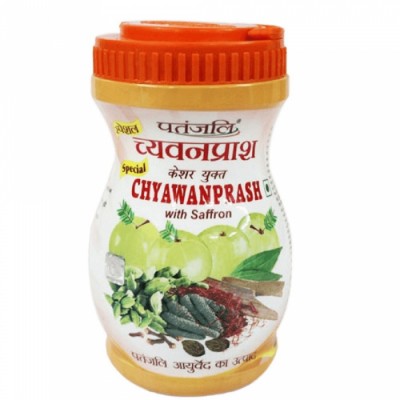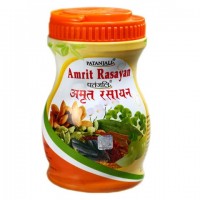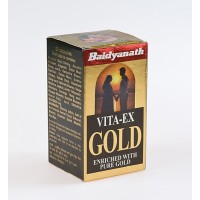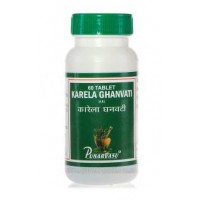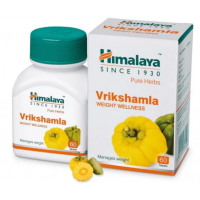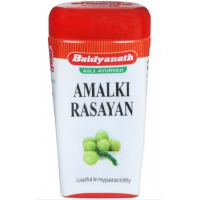Chyawanprash is used to boost immunity, strengthen the body, prevent diseases, recover after a serious illness, and promote overall health from many ailments.Chyawanprash with saffron from Patanjali is one of the best types of Chyawanprash. This Chyawanprash has a wonderful taste and pronounced tonic effect. Chyawanprash with saffron from Patanjali is prepared in the best traditions of Ayurveda. All components included in its composition are grown in the fields of "Patanjali Yogpeeth" - a health complex and a scientific research center on the influence of yoga and Ayurveda on the human body, located in the north of India, in Haridwar. Its founder and leader is Swami Ramdev Baba, a world-renowned public figure, practitioner, and master of yoga and Ayurveda, author of more than 40 programs for the treatment of various diseases using yoga and Ayurveda, including oncological ones. Herbs and fruits are grown and harvested in strict accordance with Ayurvedic rules, at specific times, in accordance with the phases of the moon.The main component of the tonic is Amla pulp (Indian gooseberry). A powerful natural antioxidant and immunomodulator, the richest source of vitamin C in nature. It also includes many other components: berries, fruits, medicinal herbs, ghee, honey, spices, including saffron - the most expensive spice on earth, combining a multitude of beneficial properties.Saffron, as part of Chyawanprash, enhances the action of other herbs. The nature of saffron is sattvic and endowed with the energy of life. This royal spice balances the three doshas, rejuvenates the cells of the whole body, purifies the blood, promotes its thinning, improves blood flow through the vessels, provides the body with energy, nourishes brain cells, improves metabolism, stabilizes menstruation in women, improves female sexual function, improves skin condition, relieves intoxication effects. In Ayurveda, it is used to treat nervous diseases, hysterical seizures, convulsions, cough, whooping cough, digestive disorders, as a diuretic, diaphoretic, and cardiac remedy.**Purpose:** weakness, recovery after illnesses, low immunity, inflammatory processes in the body, respiratory diseases, allergies, avitaminosis, multiple sclerosis, depression, stress, low hemoglobin, weak blood vessels, premature aging, urological and gynecological diseases (comprehensive treatment), low hemoglobin, high cholesterol, predisposition to tumors, increased mental and physical stress, brittle hair and nails, decreased potency and libido, hypertension or hypotension, adaptation difficulties, living in an environmentally unfavorable situation, engaging in sports.**Active ingredients:** Saffron (Crocus sativus). This spice can destroy cancer cells, is a tonic for the nervous system, helps with stress and depression, is an aphrodisiac, cleanses the liver and kidneys, lymphatic system, and blood. The use of this spice in small quantities contributes to improved digestion. Saffron threads have many healing properties, as they contain carotene, 0.34% essential oil, which includes pinene, pineneol, vitamins, thiamine, and riboflavin, flavonoids, etc. In folk medicine, it is used as an analgesic, diuretic, diaphoretic, anticonvulsant, and cardiac remedy. It is used to strengthen the stomach, improve appetite, treat liver diseases, relieve severe coughing fits, and treat whooping cough. It cleanses the kidneys and bladder. It awakens the joy of life and gives a good mood.**Amla (Emblica officinalis).** Helps normalize blood glucose levels, supports heart health. In 100 g of fruit pulp of this plant, there is 30 times more vitamin C than in an orange. It strengthens teeth and bones, promotes hair growth, improves metabolism, boosts immunity. Helps synthesize hemoglobin, cleanses the liver and other internal organs of toxins. The fruit has a rejuvenating effect, neutralizes and removes heavy metals and free radicals.**Haritaki (Terminalia chebula).** A well-known rejuvenating plant. Slows down hair graying and accelerates their growth, positively affects memory and vision, treats diseases of the lungs and digestive system, acts as a mild laxative, improves immunity and normalizes digestion. Helps get rid of parasites, restore normal intestinal microflora.**Bibhitaki (Terminalia bellirica).** A rejuvenating plant with a tonic, anthelmintic, and laxative effect. Helps with a number of diseases and also puts high vata dosha in order. Removes stones from the digestive tract and has a positive effect on all body functions.**Bhumiamla (Phyllanthus niruri).** A plant that improves metabolism, as well as a cholagogue, healing, anti-inflammatory, and diuretic. This herb rejuvenates, restores, and tones the liver, and it reduces the consequences of the negative effects of alcohol, tobacco, drugs, chemotherapy, and so on on the liver. The plant is also used to treat various skin diseases: psoriasis, neurodermatitis, and eczema, and to get rid of parasites.**Grapes (Vitis vinifera).** Has antioxidant, tonic, regenerating, and nourishing properties. The healing properties of grapes are used in the following cases: to reduce cholesterol levels in the blood, treat skin diseases, prevent atherosclerosis, restore the nervous system, reduce the risk of hormone-dependent tumors, prevent cardiovascular diseases, varicose veins, improve blood circulation, as a dietary oil for obese people and diabetics.**Ceylon Cinnamon (Cinnamomum zeylanicum).** The plant's seeds are rich in essential oils, zinc, calcium, vitamins A and B group, magnesium, sodium, and phosphorus. It has a beneficial effect on the nervous system. It relaxes, soothes, and alleviates symptoms of depression, apathy, giving a feeling of lightness and tranquility. It is an excellent remedy for preventing respiratory diseases, treating pharyngitis, and relieving persistent cough. It is an effective expectorant and mucus remover, expelling it from the lungs and bronchi in asthma, bronchitis. It restores the proper functioning of the digestive system. It eliminates symptoms of overeating, feeling of heaviness in indigestion, diarrhea, flatulence.**Dashamula (Dashamula).** A classic Ayurvedic composition of ten medicinal roots. It is believed that in combination, they have a very strong healing effect. It includes: bilva, shionaka, patala, shaliparn, prishniparn, brihati, kantakari, gokshura, agnimathi, kasmariya. Improves the condition of the neuroendocrine system by regulating the function of the thyroid, pancreas, adrenal glands, reproductive system. Has a rejuvenating effect on the body.**Ashwagandha (Withania somnifera).** Increases endurance, enhances sexual energy, improves memory, gives strength, nourishes the body with necessary vitamins and trace elements, reduces the intensity of neuroses, strengthens the heart. Used as an aphrodisiac and a means to improve brain function, has a calming effect, relieves insomnia and chronic fatigue.**Sugarcane (Saccharum officinarum).** A source of easily digestible carbohydrates, without which the synthesis of ATP substances - the energy source in the body, is impossible. Necessary for the work of the brain and metabolism in nerve cells, contributes to the appearance of a large amount of energy reserves in the body. Normalizes digestion, as it is rich in fiber. Contains useful substances: vitamins of group B, potassium, sodium, calcium, magnesium, phosphorus, iron, and zinc.**Bala (Sida cordifolia).** Translated as "strength." One of the most widely used plants in Ayurveda. Balances all three doshas, is a natural analgesic and tonic, improves endurance and immunity, gives strength to the body, treats rheumatism, cleanses the blood, heals the skin, has a rejuvenating effect. Helps recover after illness, accelerates wound and ulcer healing, helps with skin diseases, supports the liver.**Guduchi (Tinospora cordifolia).** A highly effective natural medicinal product of universal action, as it is simultaneously an immunomodulator, antioxidant, antiseptic, bronchodilator, cardiotonic, analgesic, and antispasmodic, as well as antipyretic and antitumor agent. Harmonizes Tridosha. In the tradition of Ayurvedic medicine, the drug is used to treat acute infectious diseases. It shows special effectiveness in eliminating harmful toxic compounds, both as a result of the internal work of the body itself, its biological poisons, and from external sources, due to adverse environmental factors. It has a beneficial effect on the digestive system, improves appetite. Contributes to neutralizing increased stomach acidity, which is beneficial in the treatment of gastritis. Eliminates digestive disorders, indigestion, diarrhea, vomiting, constipation, increased gas formation. Treats urinary tract infections, acts as a diuretic. It is an aphrodisiac. Contributes to recovery after illnesses and gives strength to the body, increases its overall tone, strengthens immunity. It will be useful in the therapy of tumor processes, both malignant and benign.**Punarnava (Boerhavia diffusa).** An important toning and rejuvenating plant for the kidneys. Used to treat obesity. Removes all types of edema, cleanses the blood, stops bleeding. It is an analgesic and anti-inflammatory agent. Reduces blood sugar, acts as a cardiotonic. Due to the high content of calcium salts and the alkaloid punarnava, it has a diuretic effect, enhances hemoglobin synthesis, and eliminates stagnation in the liver. Has anti-inflammatory activity. One of the best natural herbs for treating respiratory diseases.**Yashtimadhu (Glycyrrhiza glabra).** Has antiallergic properties, is an aphrodisiac, pacifies all doshas. Used as an anti-inflammatory and sedative. Cleanses the blood, fights skin diseases, nourishes the nervous system, protects the heart, relieves headaches.**Shatavari (Asparagus racemosus).** Heals female reproductive organs, gives strength, rejuvenates the body, normalizes hormonal balance, fights the herpes virus, helps with stomach disorders, recovers after surgery.**Abhrak Bhasma (Siliciolithos).** Purified and specially processed mica (with the help of herbs). Contains important trace elements, helps with poor digestion, malabsorption, asthma, bronchitis, and other respiratory diseases, fever, prolonged bleeding, cough, and cold, diabetes, anemia, skin diseases, diseases of the genitourinary system, spleen problems, helminthiasis. Helps with infertility in both women and men and has a general rejuvenating effect.**Application:** take 15 minutes before meals or between meals, drinking with warm water or milk. Dosage for adults - 1 teaspoon twice a day; for children - 1/2 teaspoon twice a day. In case of flu-like conditions, the dose can be doubled. The preferred course of administration is 100 days. No break is required before starting subsequent courses. The best results are achieved with regular use of Chyawanprash.**Contraindications:** diabetes, acute gastroenterocolitis, acute pancreatitis, acute cholecystitis, acute pyelonephritis and cystitis, exacerbation of glomerulonephritis, allergic intolerance to components.**Composition:** every 10 g contains: Dashmula (Dashamula - consists of 10 plants) - 450 mg, Bala (Sida cordifolia) - 45 mg, Gokshura (Phaseolus tribulus) - 45 mg, Pippali (Piper longum) - 55 mg, Mashaparni (Teramnus labialis) - 45 mg, Pistachio (Pistacia integerrima) - 45 mg, Bhumiamla (Phyllanthus niruri) - 45 mg, Grapes (Vitis vinifera) - 45 mg, Leptadenia reticulate - 45 mg, Haritaki (Terminalia chebula) - 45 mg, Guduchi (Tinospora cordifolia) - 45 mg, Orchid (Habenaria intermedia) - 45 mg, Jivaka (Malaxis acuminate) - 45 mg, Curcuma zedoaria (Curcuma zedoaria) - 45 mg, Musta (Cyperus rotundus) - 45 mg, Punarnava (Boerhaavia diffusa) - 45 mg, Polygonatum cirrhifolium - 45 mg, Nymphaea nouchali - 45 mg, Pueraria tuberose - 45 mg, Adhatoda vasica - 90 mg, Roscoea alpine - 45 mg, Martynia diandra - 45 mg, Ashwagandha (Withania somnifera) - 45 mg, Yashtimadhu (Glycyrrhiza glabra) - 30 mg, Pippali (Piper longum) - 10 mg, Shatavari (Asparagus racemosus) - 15 mg, Javanese pepper (Piper retrofractum) - 15 mg, Chitrak (Plumbago zeylanica) - 15 mg, Ginger (Zingiber officinale) - 15 mg, Dioscorea bulbifera - 15 mg, Amla (Emblica officinalis) - 1650 mg, Clarified butter (Ghee) - 273 mg, Sugarcane (Saccharum officinarum) - 6730 mg, Bamboo cane (Bambusa arundinaceae) - 182 mg, Pippali (Piper longum) - 45 mg, Ceylon Cinnamon (Cinnamomum zeylanicum) - 20 mg, Cardamom (Cardamomum) - 20 mg, Patra (Cinnamomum tamala) - 20 mg, Iron mesua (Messua ferrea) - 20 mg, Saffron (Crocus sativus) - 2 mg, Calcium sulfate (Calcined calcium sulphate) - 184 mg, Abhrak Bhasma / Calcined mica (Siliciolithos / Calcined mica) - 25 mg, Clove (Syzygium aromaticum) - 25 mg, Black pepper (Piper nigrum) - 10 mg.**Dashamula composition:** Aegle marmelos, Gmelina arborea, Stereospermum suaveolens, Oroxylum indicum, Premna integrifolia, Desmodium gangeticum, Uraria picta, Solanum indicum, Solanum xanthocarpum, Tribulus terrestris.**Manufacturer:** Patanjali, India.**Form of release and quantity in the package:** jam, 500 g.
Send us a message on WhatsApp at +39335474980 to check product availability, delivery times, and receive payment details.
You can pay for your order via PayPal, bank card, or bank transfer. Payment details will be sent to your phone number during the order process.
Our store ships orders within 2–3 business days after order and payment. Since the order is shipped from abroad, delivery may take from a few days up to two weeks. You can confirm the delivery date during or after placing your order.
You will receive your order via courier delivery to your specified address or at a post office.
Shipping within Italy to a post office — €9.90 for up to 3 kg.
Shipping within Italy by courier to your address — €12.40 for up to 3 kg.
(Please provide an address where someone will be available to receive the parcel during business hours — giorni feriali.)
For orders of €120 or more, delivery within Italy is free.
Shipping costs to other countries are calculated separately during the order process.
For orders of €120 or more, delivery is free.
Items received from a courier or post office are not eligible for return.

